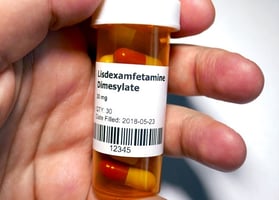Protein Antagonist May Be Effective in Binge Eating
 |
Although cognitive-behavioral therapy and interpersonal therapy, as well as the anticonvulsant medication topiramate, can help people who binge eat, a magic bullet for treating the disorder remains elusive. For more information on the the search for a treatment for binge-eating disorder, see Psychiatric News . To read research and discussions of the conceptual and methodological issues involved in diagnosing and classifying eating disorders, see American Psychiatric Publishing's Developing an Evidence-Based Classification of Eating Disorders: Scientific Findings for DSM-5.
(Image:kentoh/Shutterstock.com)





